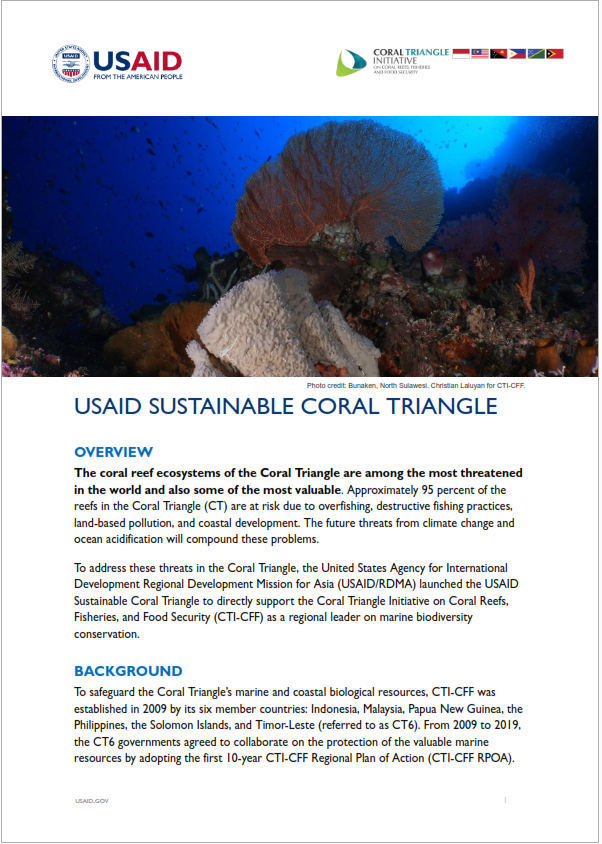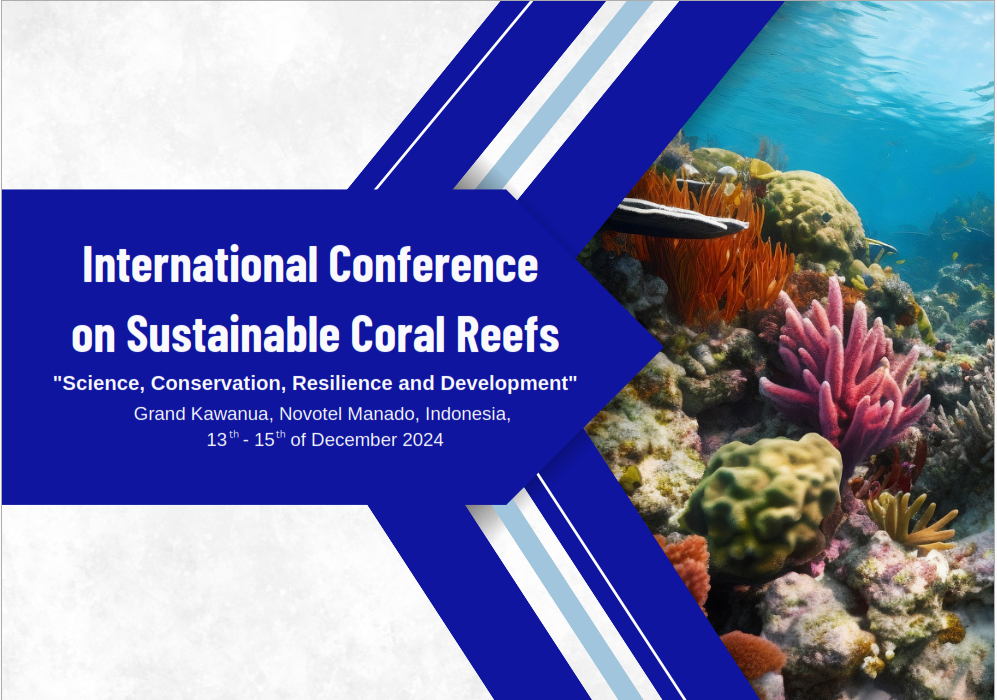Monitoring and Evaluation Learning Exchange and Training in Papua New Guinea
Monitoring and Evaluation Learning Exchange and Training in Papua New Guinea
The Coral Triangle Initiative on Coral Reefs, Fisheries, and Food Security (CTI-CFF) hosted a significant event from 15-17 July 2024, at The Stanley Hotel & Suites in Port Moresby, Papua New Guinea. This event, supported by the PNG National Coordinating Committee (NCC) and various partners, was a three-day gathering aimed at fostering regional cooperation, enhancing technical capacities, and aligning national conservation efforts with regional goals.
The event included an annual Monitoring and Evaluation Working Group (MEWG) meeting, a Coral Triangle Atlas Training, and a National Plan of Action (NPOA) Learning Exchange Workshop.
The meeting commenced with a warm welcome from the host, Papua New Guinea NCC, the Chair of the Monitoring and Evaluation Working Group (MEWG). Continued with an opening remark by Dr. Frank Keith Griffin, Executive Director of the CTI-CFF Regional Secretariat, who recognized the challenges posed by the COVID-19 pandemic and embraced the pleasure of having in-person meetings and getting to know the esteemed partners and colleagues.
Distinguished guests attending were H.E. Mr. Ariz Severino Convalecer, Charge d'Affaires of the Philippines Embassy; H.E. Hamizan bin Hashim, High Commissioner of Malaysia; Mr. Melvin Cheah Chee Aun, Counsellor; and representatives from Indonesia, Malaysia, Papua New Guinea, Solomon Island and Timor-Leste.
Dr. Frank Griffin highlighted the Coral Triangle region's critical role in global marine life sustainability. Discussions focused on implementing the Regional Plan of Action for 2021-2030, with a midterm review scheduled for 2025. A significant announcement was made about a 20-million-euro project funded by the German Government, aimed at enhancing regional monitoring and evaluation efforts.
On the CT Atlas training session, Paulina Gerstner from the Allen Coral Atlas program led the participants through the Atlas tool, demonstrating its use in supporting coral reef conservation and associated ecosystems. Participants learned how to utilize the polygon tool for extracting statistics and assessing locations for coral restoration.
Paulina also presented the results of habitat map validations and encouraged participants to report inaccuracies for future remapping. Training on the CT Atlas platform included creating logins, downloading data, and utilizing data manipulation features for monitoring coral reef threats like bleaching and turbidity.
Mr. Agostinho Andy Irmawan led a discussion on the Regional Planning and Development Goals (RPOA 2.0) for 2025 and 2030, focusing on sustainable communities and ecosystems, and the need for increased resources. Lastly, the M&E team presented an overview of the coral reef, mangrove, and seagrass coverage in Indonesia, Malaysia, and the Philippines, and discussed the inclusion of information from various countries into the CT Atlas platform.
Collaborative learning and development were emphasized, with a focus on sustainable and inclusive economic and environmental growth. Representatives discussed the need for political support and the busy schedule planned for 2024 and 2025.
Presentations from Indonesia, Papua New Guinea, and the Solomon Islands highlighted marine conservation efforts, including the management of mangrove forests and marine protected areas (MPAs). Updates were provided on national marine conservation strategies, emphasizing stakeholder consultation and the need for updated data.
Discussions led by Mr. Anjum Islam from USAID Sustainable Coral Triangle (SCT) focused on improving the CT Atlas platform by addressing inaccurate data, incorrect naming, and poor data synchronization. The USAID SCT will support the initiative to update the platform with reliable information and standardizing attribute usage.
Mr. Solomon Sundah also demonstrated how to export MPA polygon data from the Alan Coral Atlas to the CT Atlas and how to manage and clean the data, focusing on data sharing, training, and management. The team was introduced to the data and its attributes, and the importance of verified data at the ground level was emphasized. The process for reviewing and selecting CTMPAs nominations was explained, with a focus on the required attributes for categories three and four.
The Regional Secretariat team led by Ms. Cristel Amarillo was then instructed on how to manage and clean data, using tools such as Google Earth, Excel, and QGIS. The team also learned how to input data into Google Earth, manage and transform MPA points into shapefiles, and correct formal name and typo errors. The team was advised to familiarize themselves with these procedures, and the RS team indicated that further assistance would be provided to the CT Atlas Focal Point.
Aligning activities and integrating information into national plans of action (NPOAs) was also a key topic of discussion. A learning exchange workshop facilitated by consultant Mr. Muhammad Ichsan aimed to share information and experiences among countries.
Budget planning for 2024 was addressed, emphasizing the importance of collaboration and realistic budgeting. The need for dedicated staff and partnerships to support the Monitoring and Evaluation team was also highlighted.
The Monitoring and Evaluation Working Group (MEWG) stressed the importance of finalizing NPOAs by year-end and agreed to conduct a special meeting to discuss the work plan and budget. Regular meetings for NPOA monitoring were also planned.
The three-day meeting in Papua New Guinea underscored the importance of accountability and evidence-based decision-making in marine conservation. Comprehensive training, collaborative discussions, and strategic planning set the stage for continued progress in the Coral Triangle Initiative.



